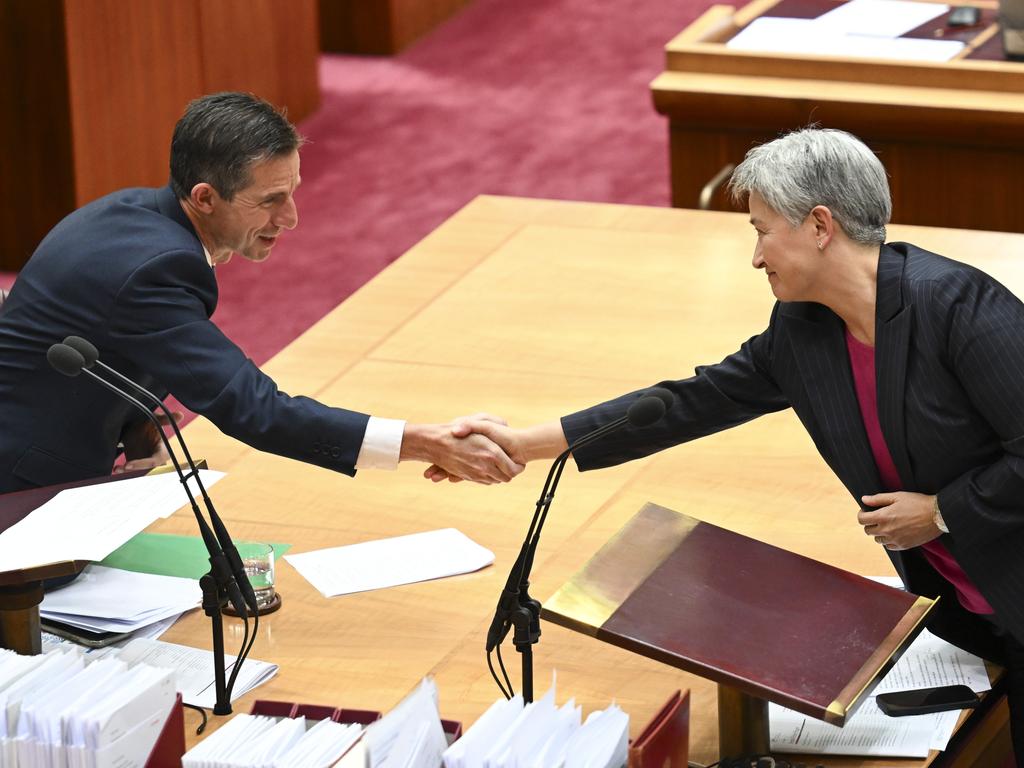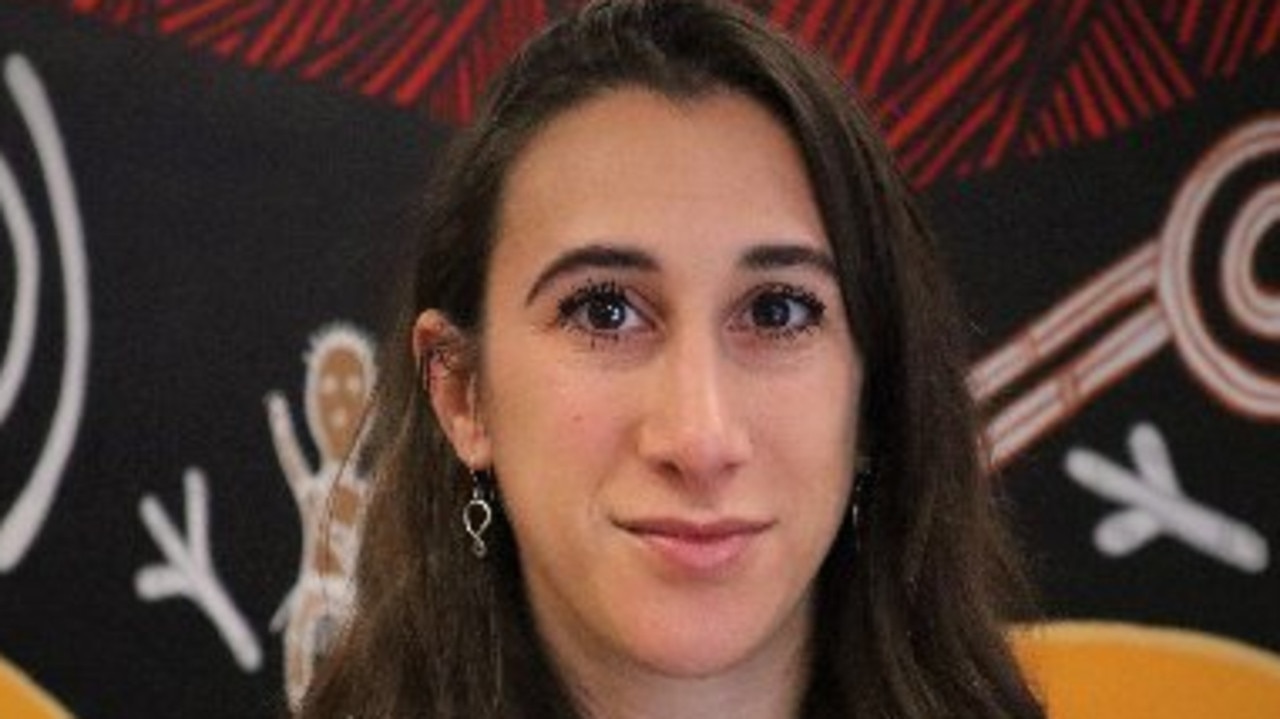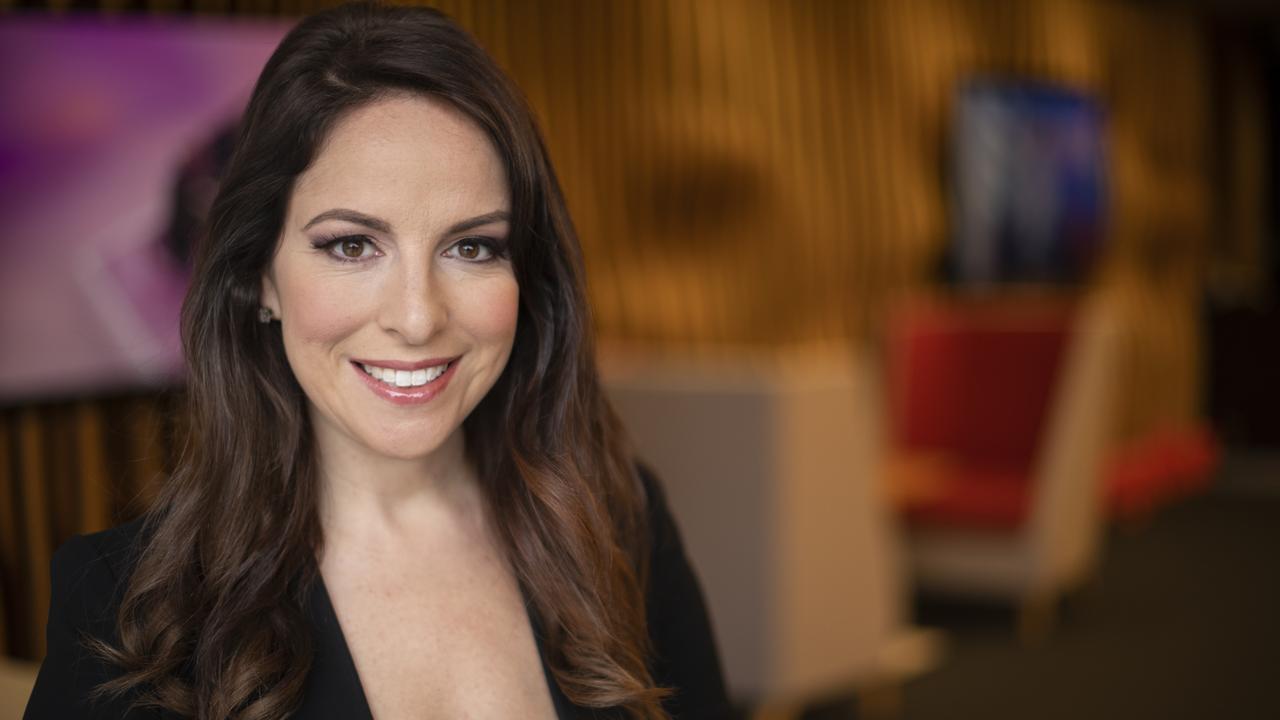‘All we are saying is just give the voice a chance’
On the same day Lidia Thorpe was making a spectacle of herself on the floor of Senate, another Indigenous Australian was taking centre stage in another Australian parliament.
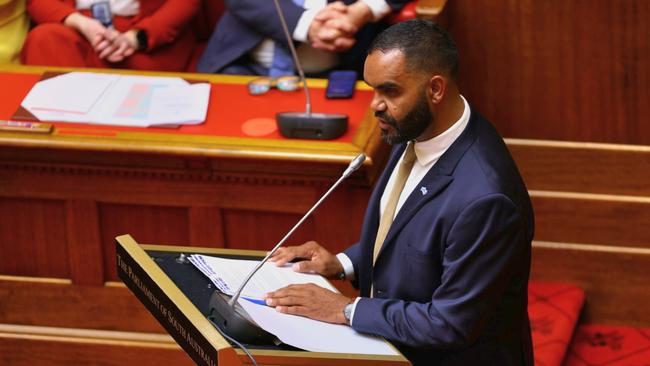
On the same day Lidia Thorpe was making a spectacle of herself on the floor of Senate, another Indigenous Australian was taking centre stage in another Australian parliament to deliver an address that was thoughtful, constructive and decorous.
Thorpe’s solutionless rage against what she calls the colonial experiment was in contrast to the debut performance by Leeroy Bilney from the South Australian west coast town of Ceduna as he gave the first Indigenous voice address to an Australian parliament.
Bilney’s speech was everything voice supporters reassured us it would be – an unfettered discussion of policy issues facing Aboriginal Australians, none of it binding on the South Australian parliament.
It was also given in the context of a very different voice to the model rejected so emphatically at last year’s referendum – not a constitutional voice but a legislated voice that can be amended or repealed by the parliament if it proves ineffective or irredeemable.
But to voice opponents Bilney’s speech should never have taken place at all. It was seen as an affront to the idea of Australian equality in that it afforded one group of Australians a special privilege available to no other, the right to address parliament on their specific issues of concern.
Bilney is one of the 46 delegates elected at South Australia’s first voice elections earlier this year. The delegates to six regional voices spread across SA make up the peak state voice, of which Bilney is a presiding member, hence his lead role at the joint sitting in the SA Legislative Council at 11am on Wednesday.
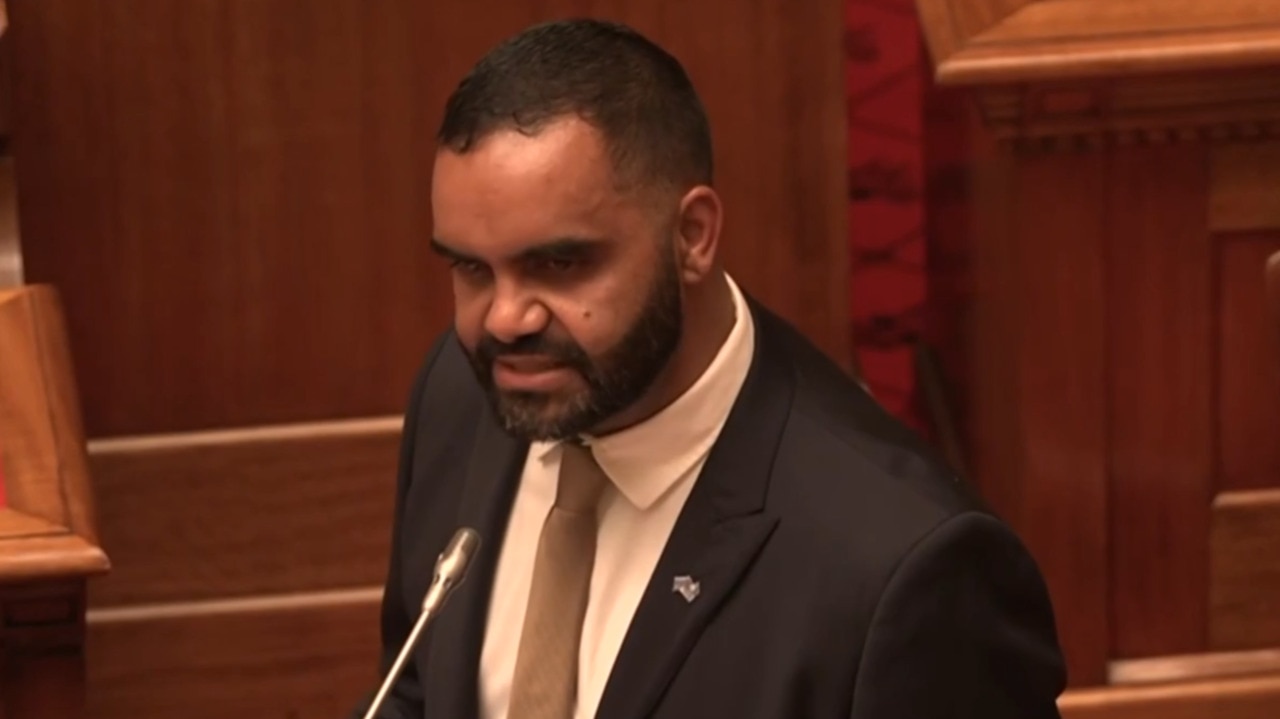
The creation of the SA voice predates the federal referendum. It was a clearly stated policy position of SA Labor ahead of its 2022 election win, with the Malinauskas government passing the enabling legislation in March last year.
Such details remain lost on many South Australian voters who regarded last year’s referendum result as such an emphatic demonstration of the public mood that the Malinauskas government should have abandoned its voice project, regardless of any nuances around its timeline.
It was a point Bilney addressed head-on in his address, asking people to give the voice a chance to make positive change. He aimed that message at every key group of detractors: jaded Aboriginal people who felt disenfranchised by past attempts at Indigenous representation; conservative MPs who regarded it as grievance politics; voters who simply believed it was a waste of time and money.
“There is a lot of cynicism around the creation of the voice, and there is a heavy burden on us to prove ourselves,” Bilney told parliament.
“To prove ourselves to First Nations people who heard about the voice and thought: ‘Been there done that’, and think we are just going to be another failed advisory group that has been established to make it look like something is being done without ever achieving anything.
“To prove ourselves to the critics who feel like this opportunity is giving First Nations people a special advantage that other South Australians don’t have.
“To prove ourselves to those people who voted for us, believe that this is a once-in-a-lifetime opportunity to be seized.
“Since the referendum last year, I know some members of parliament who are less enthusiastic about our presence here, those who believe the money could be better spent elsewhere or that establishing a First Nations voice is giving First Nations people preferential treatment at the expense of others, and those who, like many within the Aboriginal community itself, believe this is a symbolic gesture that will achieve nothing or who say the referendum showed most South Australians do not support a voice.
“We are determined to prove you wrong, because we believe in a better future, a future where we can each put our differences aside and work together constructively.”
Bilney’s own background is a diverse one, professionally and culturally. His ancestry comes from many different South Australian Indigenous groups. He is a Marlinyu Ghoorlie, Wirangu, Kokatha, Mirning, Noongar and Barngala man who was born in Port Lincoln but has lived most of his adult life in Ceduna, the beautiful but troubled oyster farming town where the removal of the cashless welfare card last year remains hotly contested.
After a stint in the performing arts where he co-wrote the musical The New Black with actor Ernie Dingo, Bilney has spent most of his life working on improved health outcomes for Indigenous communities. He also chairs the Spinifex Foundation, which seeks to target philanthropic support for community-led programs to lift Indigenous communities out of poverty.
He used his speech to give specific examples of unique problems voice delegates were trying to fix now they have a clearer line to government.
Many of these were the huge, well-documented challenges going to domestic violence and alcohol and drug abuse; others were cases that seem totally unrelatable to white city residents.
He told a story of an elder who had fallen into homelessness and was afflicted by serious physical and mental health conditions, whose only possessions were contained in one small bag. The elder was unable to access his medication because he would have panic attacks on being asked by the pharmacy to have his bag inspected. A voice delegate helped arrange for him to have his prescriptions filled at another pharmacy that trusted him not to open his bag.
The voice came and went with little fanfare in South Australia this week. The politics of it have been interesting for both Labor and the Liberals.
Unlike the federal voice – which became very much Anthony Albanese’s baby – Peter Malinauskas has done little publicly to spruik the voice and has left its carriage to Attorney-General and Aboriginal Affairs Minister Kyam Maher. There is no sense that Malinauskas as Premier has dropped everything to champion the voice.
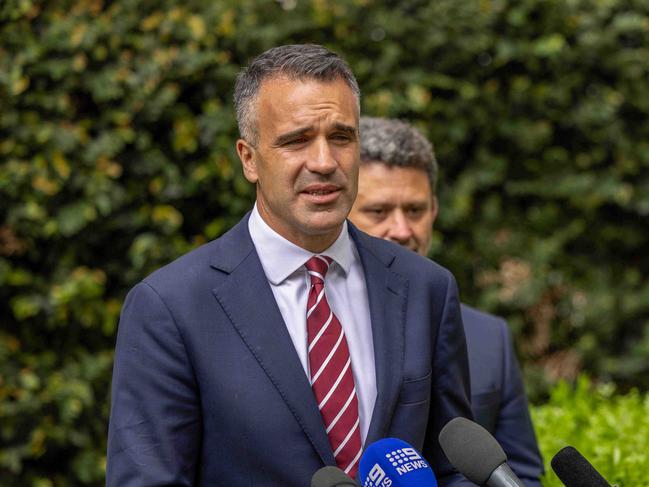
It also has benefited him within caucus, helping him win Left Faction support or silence for internally contentious positions such as public funding for the AFL Gather Round and Saudi Arabian-backed LIV Golf, his hostility to the CFMEU and his support for nuclear power and waste storage.
Its management may yet prove trickier for the SA Liberals, who under ousted former leader Steven Marshall supported a more limited form of a voice to parliament in SA, with several SA moderates still privately backing the idea.
New leader Vincent Tarzia said this week he remained “very, very sceptical” about whether the voice would deliver any improved outcomes for Indigenous Australians.
But to Liberal Party conservatives, and many in the general public, that isn’t remotely the point. They remain implacably opposed to the concept in that it divides people on the basis of race, giving people such as Bilney and his 45 colleagues a platform denied to any other South Australian.


